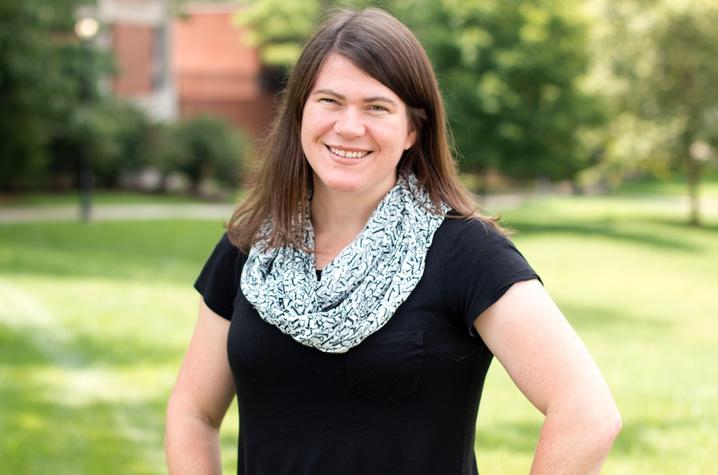LEXINGTON, Ky. — A team of researchers at the University of Kentucky’s Human Development Institute (HDI) is improving understanding of how biases experienced during prenatal screenings and diagnoses of Down syndrome can impact families and the information they receive.
Stephanie Meredith is the director of HDI’s Lettercase National Center for Prenatal and Postnatal Resources and the mother of an adult with Down syndrome. She worked with fellow HDI colleagues Sierra Weiss, Harold Kleinert, Ed.D., and Cameron Tyrrell on the study published in the Disability and Health Journal.

“This is the largest study to date of parents who received a prenatal diagnosis of Down syndrome, with 242 respondents from 41 states all receiving their diagnosis between 2016 and 2021, so the information is very current,” said Meredith. “Most parents remember the moment they received a diagnosis with perfect clarity for decades, and how it is communicated can profoundly shape that experience. We aim to underscore the need for support and accurate, up-to-date, balanced information during that emotionally vulnerable time.”
Down syndrome is a condition in which a person has an extra chromosome. The extra genetic material can cause health issues for some people with Down syndrome, with many options for treatment and often causes mild to moderate intellectual disabilities. However, inclusion, better health care, support and services have significantly improved outcomes for people so that most are active members of their schools and communities and usually live long lives.
According to a 2022 study with Harvard Medical School, about 1 in every 800 babies are diagnosed with Down syndrome, making it the most common chromosomal condition diagnosed in the U.S.
“The purpose of this study was to find out what recommendations clinicians are following when delivering prenatal screening results and what factors influence the information provided,” said Meredith. “We found that bias significantly impacted the provision of information following screening results.”
The online survey was completed by respondents who were asked to recount their diagnosis experiences, evaluating strengths and improvement areas in clinicians’ actions. Respondents also answered yes/no questions about the information clinicians shared.
The internally funded study measured implicit and explicit bias by tracking how clinicians shared the results.
Surveyed parents said 61% of obstetric providers apologized or presented the diagnosis as bad news. That was used to measure implicit or unconscious bias against Down syndrome and a lack of sensitivity in sharing the message.
“My maternal-fetal medicine doctor was much more harsh,” said one of the parents, describing their experience in 2018. “He said ‘I’m sorry’ several times and immediately went into all the potential health issues we would need to consider if we really intended to continue with the pregnancy.”
Explicit bias was demonstrated as conversations that included incorrect and discriminatory assumptions about Down syndrome not based on medical research.
“The maternal-fetal medicine doctor who gave us our diagnosis acted like it was a life sentence filled with horror stories. He presented information from the 60s and told us our fetus would never amount to anything, be a burden to our family and ultimately end up living in an institution,” shared another parent after their 2016 diagnosis.
The survey found providers were most likely to discuss medical issues and reproductive options. However, less than 40% discussed support services and life outcomes.
Parents highlighted the need for information about Down syndrome and supporting organizations to improve care after prenatal screenings. Just over half of unbiased obstetric providers gave parents accurate, up-to-date and balanced resources at the moment of diagnosis versus 17% of biased clinicians, according to surveyed parents.
“We hope this information can be used to guide better clinical training about how to discuss disabilities at the vulnerable moment of diagnosis and improve patient education and support,” said Meredith.
The study’s authors conclude that enhancing the delivery of prenatal screening results could be achieved by establishing more specific professional practice guidelines for managing pregnancies following a suspected Down syndrome diagnosis. Furthermore, improved dissemination of patient education materials and the implementation of clinical training and toolkits on delivering diagnoses and discussing disabilities are recommended.
HDI offers free nationally recommended patient education materials and free online courses for clinicians to develop those skills at lettercase.org.
The Down Syndrome Diagnosis Network and 12 other local Down syndrome organizations helped the team of researchers with the study, both in its design and recruitment. You can read the entire study online here.

















